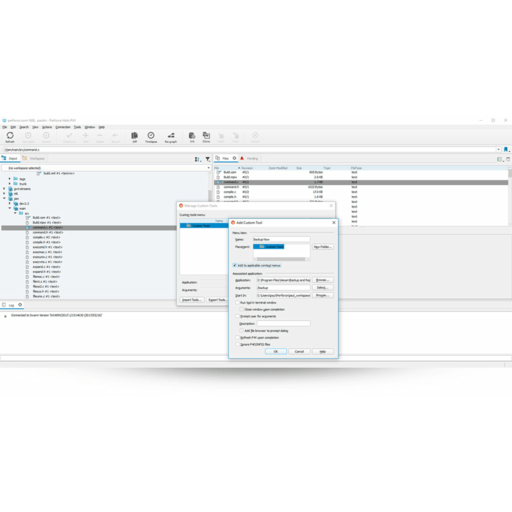

arguments are given, only those paths are affected. This can, for example, be useful to remove all build products.

Normally, only files unknown to Git are removed, but if the -x option is specified, ignored files are also removed.

Git-clean - Remove untracked files from the working tree Synopsis git clean …Ĭleans the working tree by recursively removing files that are not under version control, starting from the current directory. NOTE: git diff will still work and will display the diffs in the terminal. In order to see diff's (between Working directory to the staging area, for instance) you can now use the command: git difftool that will open the p4merge GUI to be used. Git config -global /usr/local/bin/p4merge Git config -global mergetool.prompt false Sudo mv /home/guya/Downloads/p4v-20398/* /opt/p4mergeĬreate a symbolic link to the p4merge executable with the command: sudo ln -s /opt/p4merge/bin/p4merge /usr/local/bin/p4mergeĪdd the following commands to git's "global config settings" so p4merge will be used as both git's difftool & mergetool: Once downloaded extract it and copy the contents of the folder to a new folder /opt/p4merge:ĭ) I have downloaded it to /home/guya/Downloads and the "extracted" p4merge folder was (08/19) p4v-20398, so in my case the command was:
LINUX P4MERGE DOWNLOAD
Go to the Downloads page of Perforce website, and in the search bar write: p4merge.Ĭhose the p4merge for Linux platform and download it (note that you can skip the registration).
LINUX P4MERGE INSTALL
LC_CTYPE=en_US.To install p4merge and set it as git's difftool & mergetool on a Linux machine ( Ubuntu 16.04) I did the following: When invoking the command from the command line, simply prepend the correct setting to the command, i.e. The LC_CTYPE facet should be the relevant one, but start with LC_ALL first just to be sure. You can fix that by either recoding the files, or by starting the process in question with a different locale. Your locale indicates that text files are expected to be encoded as UTF-8. I believe its my Locale configuration, but can't discern what's amiss. Or it might inform the user about these issues, which would be even nicer, but apparently KDE doesn't go this far. Or it might consider the corresponding bytes to be errors and drop them from the file. It might start guessing, which apparently is what GTK does. I guess you might call this a feature, not a bug: when the application sees some byte sequences it cannot interpret as characters in the current locale, it has several options. GTK Meld (and all other GTK apps) handles the chars (ISO-8859-1 and UTF-8) quite well. Then I suggest you recode the files to UTF-8, merge them, then recode back if neccessary. Qt use flags for x11-libs/qt-core-4.8.2:4: exceptions glib iconv qt3support ssl (-aqua) -c++0x -debug -icu -pch If UTF-8 encoded files are presented to the tools, all non-latins are handled correctly. The Dejavu Monospace font is used, Courier New shows the same behavior. Both tools don't display the Umlauts and when the file is saved, they also disappear in the file. Actually I'm trying to merge two German files with KDiff3 and P4Merge (making "Whlen" out of "Wählen"). Qt applications are deleting non-latin characters from ISO-8859 encoded files on my Gentoo system.


 0 kommentar(er)
0 kommentar(er)
